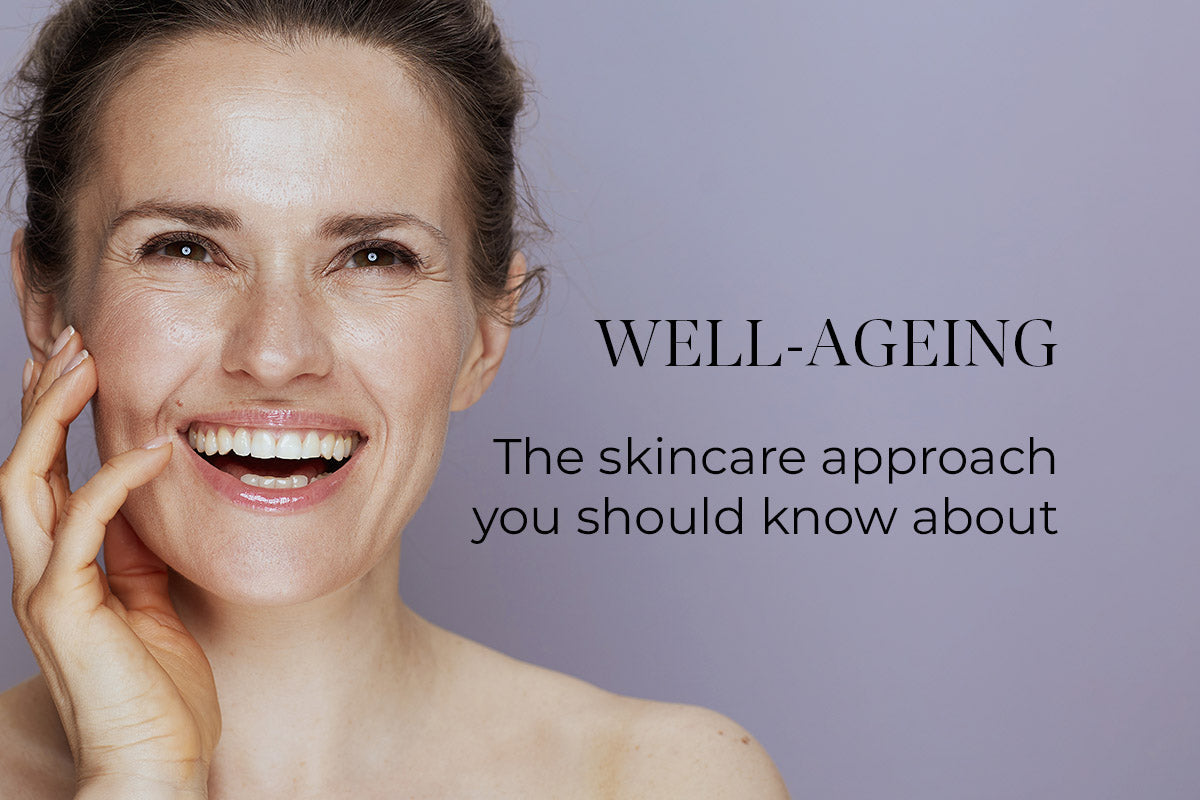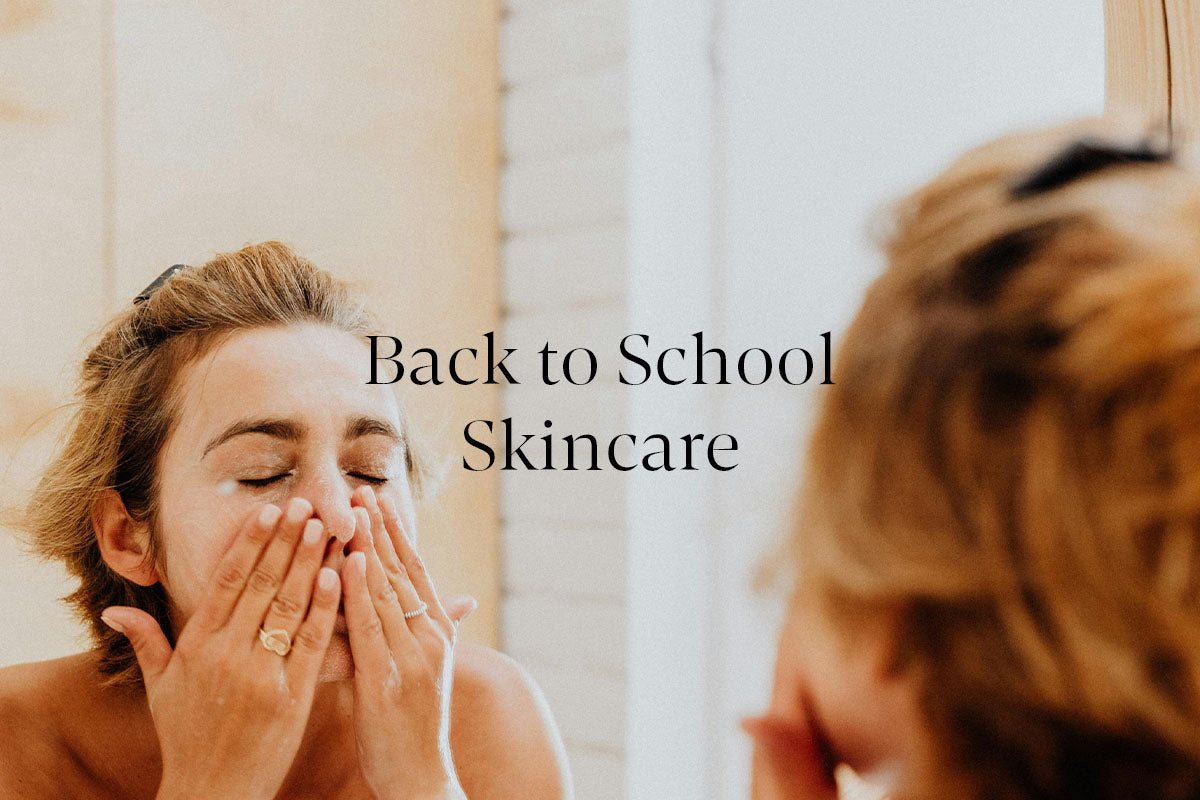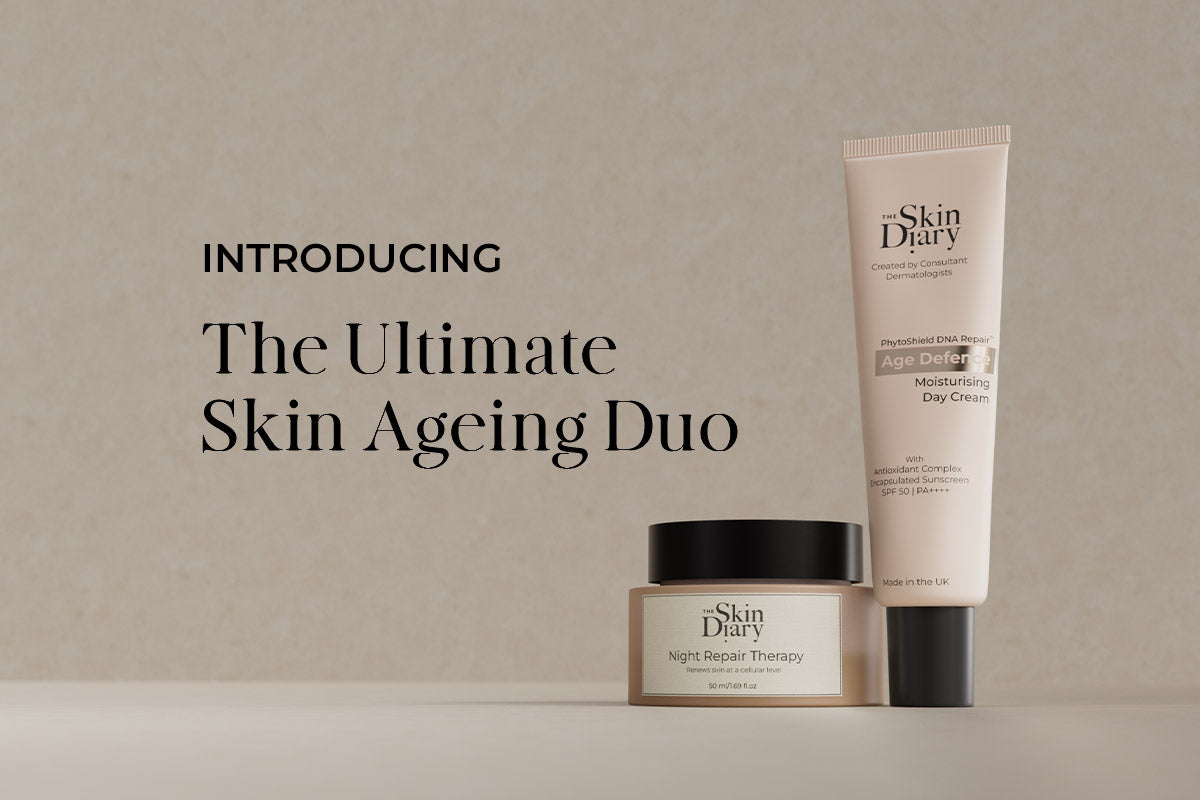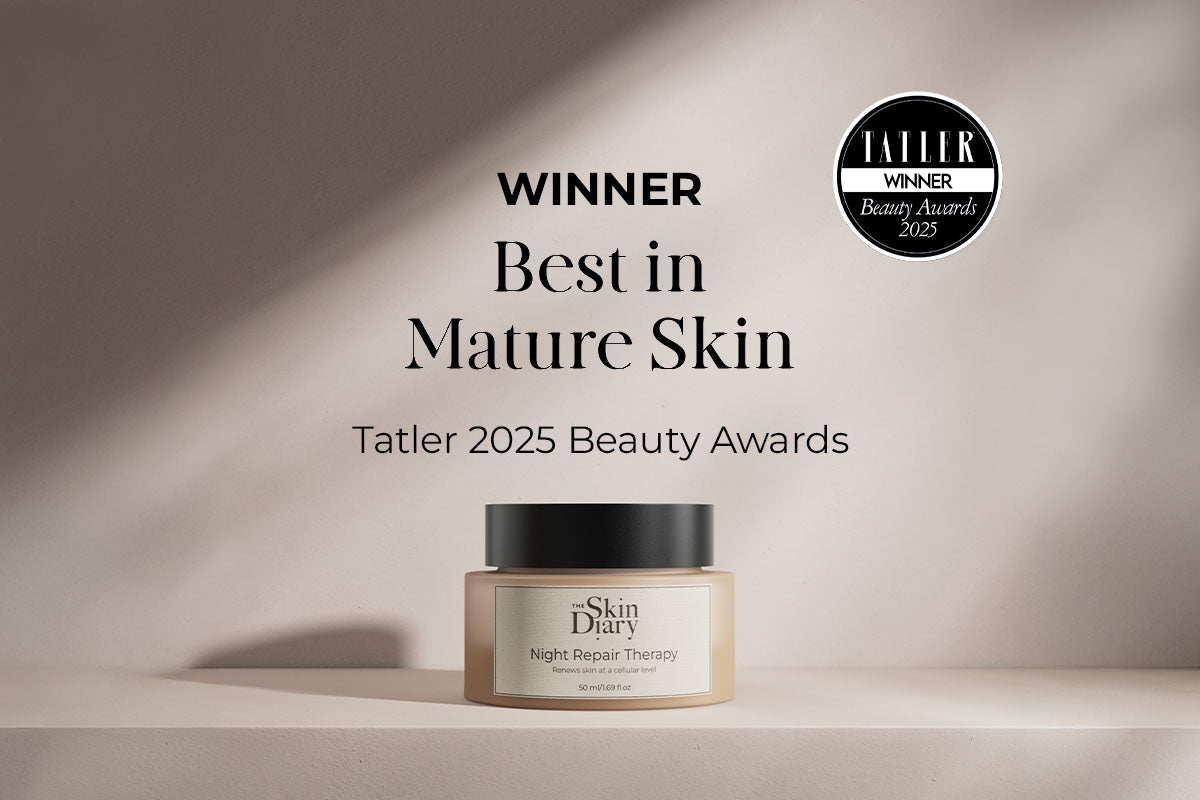You’ll hear us talking a lot about well-ageing at The Skin Diary and that’s because we truly believe in the philosophy of it. We believe that taking care of your skin and prioritising skin health goes far beyond cosmetics. It’s all about helping people be their best selves. Here’s what you need to know about well-ageing and how you can base your skincare routine around it.
What is well-ageing?
The definition of ageing well is “the ability to maintain low risk of disease-related disability, high mental and physical function, and active engagement with life,” [1]. It’s about maintaining and enhancing skin health throughout our lives, prioritising biological and physiological integrity over solely cosmetic improvements.
The main focus is reducing the risk of skin cancer, skin issues related to UV exposure, poor healing, barrier dysfunction, and improving self-esteem and self confidence.
As dermatologists, our aim is to promote healthy skin ageing and give patients the tools to maintain healthy skin as they age. When we apply this to skincare, well-ageing becomes a routine that focuses on the health of our skin from a holistic standpoint [2].
Well-ageing beyond the cosmetic
Well ageing matters beyond just the cosmetic because we’re living longer. The number of people over 60s is set to double by 2050 [3], which means skin ageing could become a major issue if prevention isn’t in place. This could mean a rise in skin cancer and chronic cutaneous fragility syndrome (things like tear, infection and poor healing). Preventative treatments that aim to promote healthy skin are imperative.
Topical skincare for well-ageing
We know why it matters, so now let’s move on to how we can do it.
Topical skincare can address a number of concerns related to ageing skin, including dull skin, coarse texture, pigmentation and fine lines. We must be clear about what it cannot address, too, which is deep lines, jowls and volume loss.
Focusing on skin hydration, barrier function, immune function and elasticity is necessary for well-ageing. Maintaining skin moisture levels is important for preventing dryness and flakiness, contributing to a youthful appearance and healthy function. A strong skin barrier protects against environmental aggressors, helping retain moisture, which is essential for skin health [4]. Impairment of skin hydration and barrier result in stress on the skin’s immune system and leads to inflammation and inflammaging [5]. Finally, the skin’s ability to stretch and rebound is primarily due to collagen and elastin, which decline as we age.
But how do we do that? We focus on a few key areas:

Sun protection - Staying out of peak sunlight during summer months, wearing UV protective clothing where appropriate and applying SPF 50 with UVA and UVB protection year-round.
Adequate hydration - Keeping our skin barrier happy with moisture helps retain the good stuff and keep out the bad.
Lifestyle factors to mitigate effects of ageing - Maintaining a healthy diet, active lifestyle and minimising (cutting out altogether if possible) drinking and smoking. “It makes a lot of sense and is a public health message if you like. It’s sort of boring, but it’s by far the best thing to do,” explains The Skin Diary’s Professor Chris Griffiths.
Another often forgotten element of holistic elements for well-ageing is community. Maintaining social connections are associated with better mental health and cognitive function [6].
Well-ageing skincare routine
We’re all for hyper-personalised skincare routines (it’s what we specialise in, after all), but the basis of a good well-ageing routine includes:
Cleansing - Cleansing well means you have a clean canvas for the rest of your products. You may wish to double cleanse with an oil-based product first to remove makeup if you wear it.
Serum - If you choose to use a serum that focuses on things like hydration or an antioxidant that aids cell repair.
Moisturiser - Help keep skin hydrated with a day cream and night moisturiser. You can opt for a day cream with added SPF (just use an adequate amount to get full sunscreen coverage) and a night cream with added benefits such as Night Repair Therapy, which protects, repairs and restores.
SPF - If you like to sunscreen separately from your day cream, about ¼ teaspoon is best but it depends on the consistency of the formula. You want to cover your entire face and neck to ensure good coverage.
The aim is to promote healthy, resilient skin and the cosmetic outcomes of that are just a bonus.
If you’d like to learn more about the topic of well-ageing, listen to our Skin Ageing Unlocked podcast to get insights straight from the experts.
[2] https://www.sciencedirect.com/science/article/pii/S0923181116308167
[3] https://www.who.int/news-room/fact-sheets/detail/ageing-and-health
[4] https://pubmed.ncbi.nlm.nih.gov/16098026/
[5] https://pubmed.ncbi.nlm.nih.gov/33358020/





